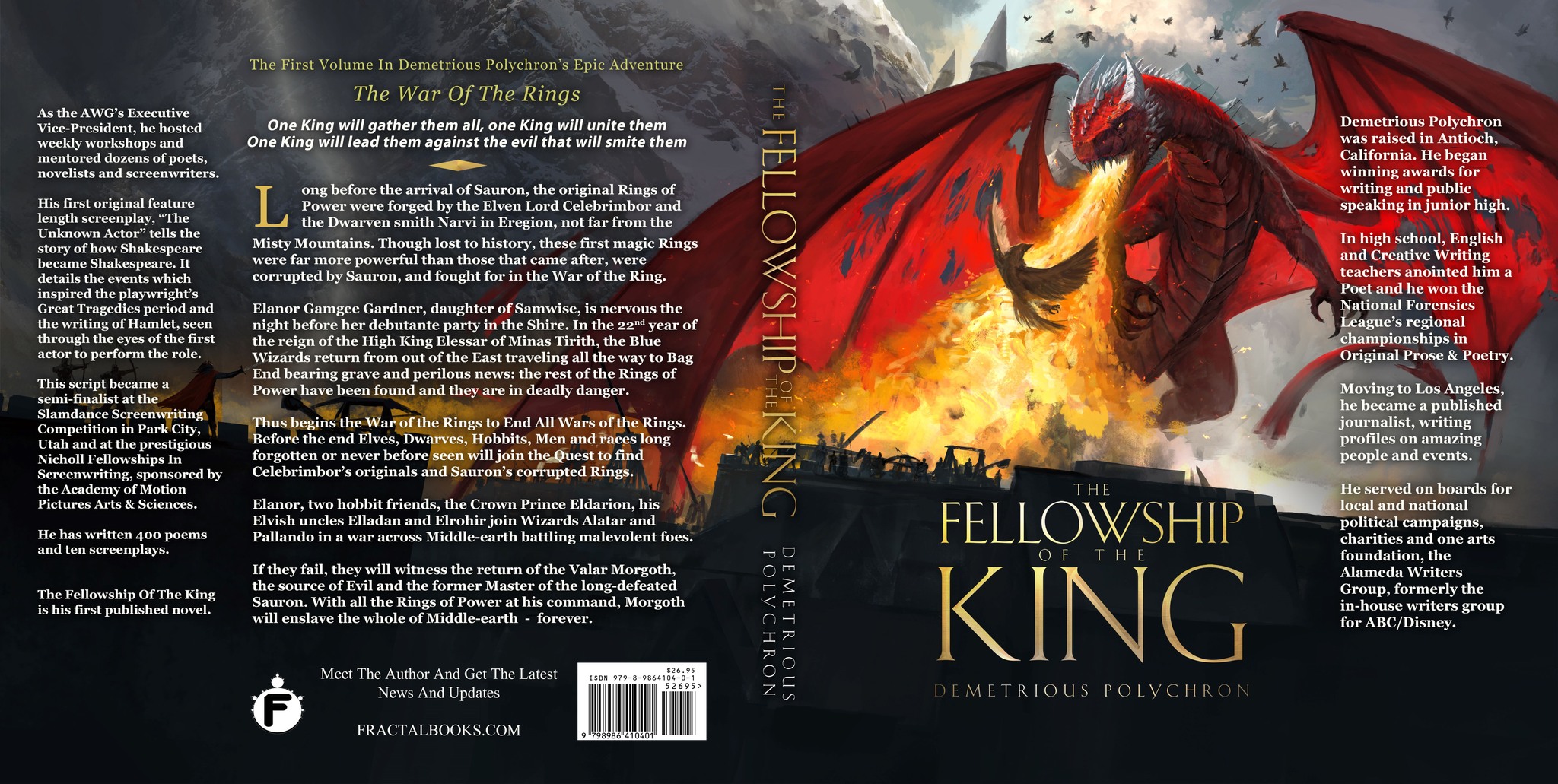
Remember the guy with the balls so big he sued Amazon and JRR Tolkien's grandson, claiming they infringed on his Lord of the Rings fanfic with the Rings of Power TV series? In a shocking turn of events that no one (except literally everyone) saw coming, he lost badly and now owes the Tolkien estate $134,000 in legal fees.
The whole thing began back in 2017 when Demetrious Polychron registered his book, "The Fellowship of the King," with the US Copyright office. He then sent a letter to Simon Tolkien, director of the Tolkien Estate and grandson of Lord of the Rings author JRR Tolkien, describing the book and requesting a review of the manuscript.
After receiving no response, he hired a lawyer in 2019 and contacted the Tolkien Estate again with another proposal to collaborate on the project. The estate quickly said "no," at which point he personally delivered a copy of his manuscript to Simon Tolkien's home for consideration.
When that also went ignored, he informed Tolkien that he intended to "publish TFOTK, and an additional six book series, independently." And so he did in September 2022, right around the time The Rings of Power first aired. Shortly after that Polychron filed his lawsuit, claiming that The Rings of Power took ideas from The Fellowship of the King and demanding $250 million in compensation.
It all sounds quite silly, but as we noted when Demetrious filed his lawsuit, this sort of complaint can be a real headache, especially for writers who don't have the resources to go to war in a courtroom. Back in the days of Usenet and BBSes, Babylon 5 creator J. Michael Straczynski had (and has) a well-known zero tolerance policy against fans posting story ideas for fear that someone would try to claim ownership of an idea that appeared in an episode, while author Marion Zimmer Bradley once scrapped an idea for a novel she was working on because a fan who had written a similar story threatened to sue for co-authorship and half the revenues earned.
Similar things happen in videogames: In 2021, writer and photographer Clayton Haugen sued Activision over allegations that the Call of Duty: Modern Warfare character Mara was based on a character he created for a project called November Renaissance.

In this case, though, it seems the matter was more cut and dry. A BBC report says Polychron's case was dismissed, with the judge ruling in reverse: that Polychron's book infringed upon Amazon's show. The Tolkien Estate then fired off a lawsuit of its own against Polychron seeking to halt further distribution of his book, and last week a permanent injunction against The Fellowship of the King and the six sequels Polychron had planned was granted. The judge on the case also described Polychron's lawsuit as "frivolous and unreasonably filed," and awarded legal fees to the Tolkien Estate and Amazon in the sum of $134,000.
"This is an important success for the Tolkien Estate, which will not permit unauthorised authors and publishers to monetise JRR Tolkien's much-loved works in this way," Steven Maier, the Tolkien Estate's lawyer, said. "This case involved a serious infringement of The Lord of the Rings copyright, undertaken on a commercial basis, and the estate hopes that the award of a permanent injunction and attorneys' fees will be sufficient to dissuade others who may have similar intentions."
It was a bold gambit to be sure, but frankly I can't say I'm surprised by the outcome. I've reached out to Polychron for comment and will update if I receive a reply.







